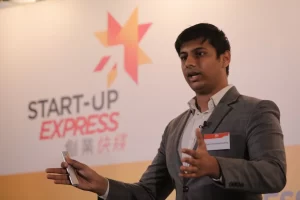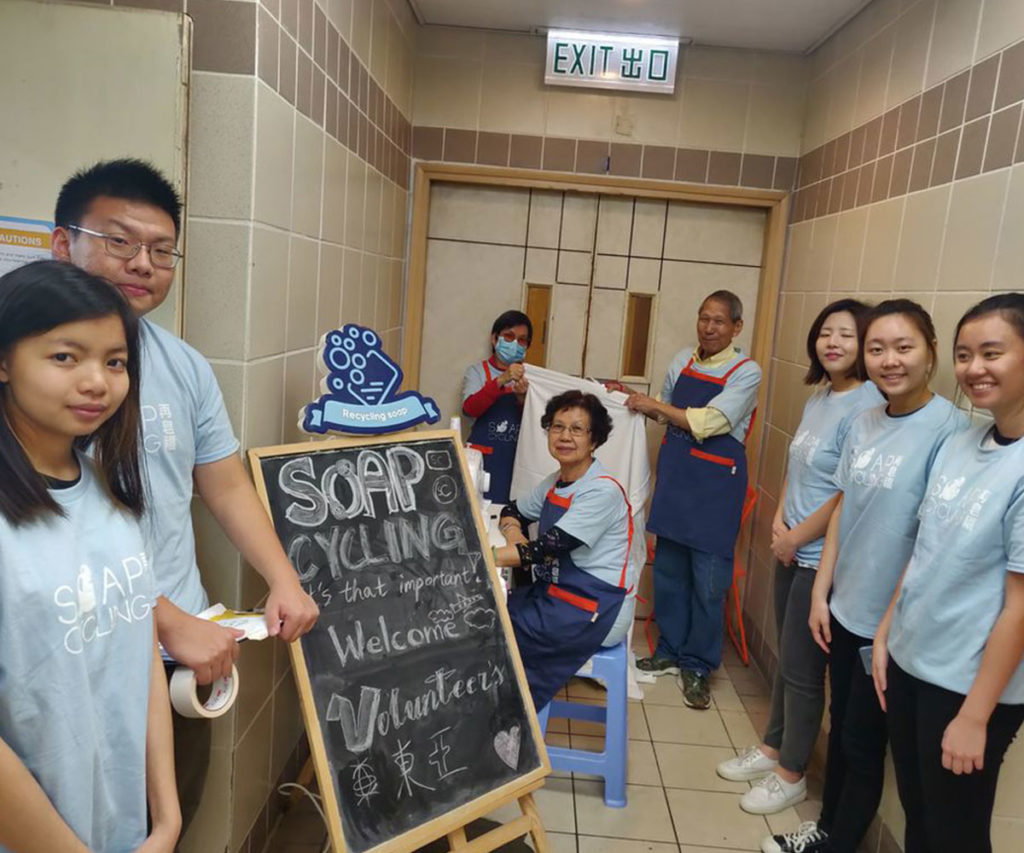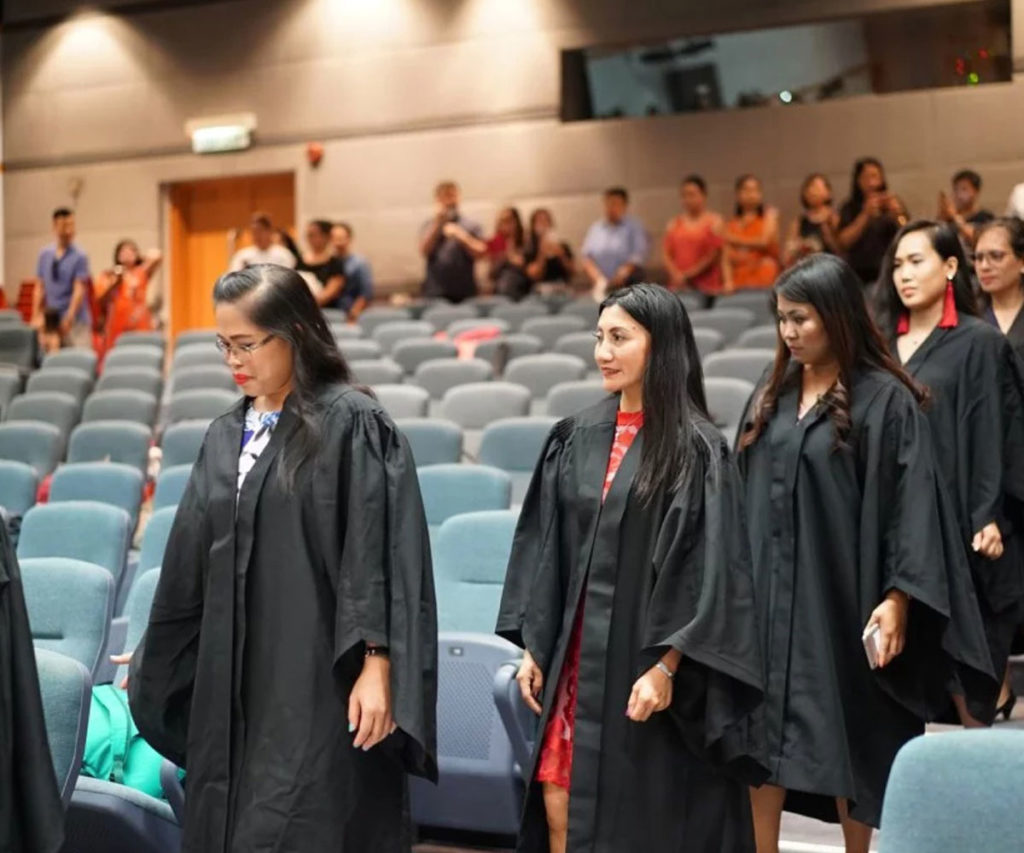Sidhant Gupta is a young and successful serial entrepreneur on a quest to leverage technology to solve problems and overcome challenges for humanity. He is the co-founder of Clearbot – AI-powered, self-driving boats with zero greenhouse gas emissions that fight ocean pollution.
Recently, we’ve spoken to Sidhant to learn how everyone can create a positive social impact. Read our interview with Sidhant to learn more about the biggest challenges Clearbot faces, Sidhan’t own generosity in sharing his knowledge and experiences, and how to be a “time lord”.
Can you give us a brief introduction about yourself?
I grew up in India in a city called Bangalore. Then I came to Hong Kong to study at The University of Hong Kong (HKU), and I’ve always been passionate about robotics. I feel in my vision of the future, humans do not do free work, as we have robots that support our infrastructure. At the HKU, I started a project called the Vayu Project, which built the world’s fastest robotic fish.
After I graduated, I started working at a venture capital firm as an entrepreneur in residence. I was the CTO of a small startup in Myanmar for about nine months, and then as COVID hit, it shut down so then I came back to Hong Kong.
It is then that I started Clearbot. At Clearbot, we basically make self-driving emission-free boats. Our vision is to build the world’s largest fleet of automated electric boats, and basically make the oceans cleaner and greener.
Have you always had this vision?
I grew up in a very traditional Indian business family, so my upbringing environment was not a big piece of the story. In Hong Kong, I met a French-Japanese inventor, Cesar Jung-Harada. He does a lot of cool stuff related to the ocean and I worked with him for about two years. In that period I got to see the opportunity for creating impact on environmental issues. When I traveled across Southeast Asia, I saw a lot of environmental issues firsthand. I saw the amount of trash for the first time and I could not believe it.
How did you get the idea of founding Clearbot?
In the final year of university we wanted to travel to Bali. I worked on initiating the Clearbot Project and leading a research team to Bali where we built ocean trash-collecting robot swarms. The university provided us with resources to do something useful, basically something relevant to coursework. That is how we came to Bali.
I had a friend who was running a hostel over there and he basically told me that cleaning the water is a huge problem in Bali. Most of the locals depend on clean beaches for business. So if you’re renting surf boats and if your beach is dirty, fewer tourists are going to come there. So the community started cleaning up the waters. This is really important and actually, it’s a daily activity for them, so the whole beach community got together in the morning.
We saw an opportunity to make something that can help the beach community scale their work. And since the government paid for all of that, we realized there’s an opportunity to make the cleanup work commercially feasible as well. That’s kind of where the idea started.
We worked in Bali with the local surf shop owners and we built a very scrappy prototype. When we returned to Hong Kong, we realized that it’s the same deal here. In fact, in Hong Kong, it is a bit worse, because the government pays for gasoline-powered boats to drive around the city and clean the water. While those boats are cleaning the water, they’re creating more pollution. And it’s actually comical, because you’ll see this tiny water bottle and then there’s this 30-foot-long boat.
The project, titled Clearbot, won the Global Grand Challenges Summit 2019. So our team thought, obviously, there needs to be a better solution to cleaning the water, and we committed ourselves to creating this. By we, I mean my co-founder, Utkarsh Goel, and myself.

What happens with the collected trash?
Whatever we pull out of the water goes to a waste management company, and then they sort out what can be recycled. A lot of the waste isn’t recyclable. It’s too contaminated. There’s a ton of issues on the actual recycling end of things, but from our side we do give 100% of what we pull out directly to a waste manager.
And we’re working now with more and more companies that recycle more different types of waste as well. With plastics the Hong Kong government is setting up new plastic recycling plants that really increase the recycling rate by a huge margin.
What have been the main challenges for Clearbot?
Honestly, earlier any serious investors would look at us and go, ”I appreciate the impact but there’s no business here”.
And it really took us some time. We know there’s a market, but Hong Kong investors are more conservative. The only way they’re going to support your business by giving you money is if you already have some access to the market, like you’re already selling something.
So the challenge was that we needed money to build a product in the first place to be able to sell it. Initially, I think fundraising was really hard. We started selling an underwater camera for research, and that was our main product. And then the team actually ended up getting a partnership with a gaming company in Singapore. Thanks to that partnership we finally got the money to finance the first bot. Then that first bot helped us to close a whole bunch of more deals. Last year when we started, it was a bit of a challenge convincing people that it is a real opportunity and it is not just some wild idea that we have.
What are the ongoing challenges that Clearbot is facing now?
So many! There’s a lot of stuff in the supply chain. COVID has not been very friendly with us. Obviously, we can’t expand outside of Hong Kong because of the restrictions here. We have supply chain issues with China, so COVID has been just a big blocker.
We have some supply chain issues and cash flow challenges, but those are just part of running any business. Apart from that things are okay and we stay optimistic.
Can you tell us a bit about your project in Australia?
We’re basically doing an education project in Australia. We started an education element for our company because a lot of schools are reaching out to us. Eventually, we found that it’s a really great way to spread awareness to even very serious clients. What I mean is that if you want to expand outside, it’s much harder to build awareness in the government, but it gets easier when you go in with an education angle.
The project is great also because you are actually educating people about the problem and how technology can help. For us, it also gives us the opportunity to enter as a business. That’s actually spreading a lot of awareness for us, while cleaning the water and getting people educated. So it kind of fits both our impact side and it actually helps us expand our business in the future.
Do you have any advice for people who would like to create a positive social impact?
I guess just do it and not think too much about it. If there is a problem you’re passionate about, find a relevant solution and just push really hard.
Unlike starting a more normal business, the one advantage of actually working in a space where you’re solving a social-environmental problem is people are willing to help you. A lot of people will be willing to help you because they care about the same issues. The thing is when people care about the same issues, people come together and work together. If you’re passionate about the problem and you just start, you will find people come around you and you will be able to actually deliver and create a positive social impact. I think starting and being passionate about it is the most important step and the rest will eventually come together.
On your personal website, you said that you want to create a billion-dollar impact company, so that people understand that you can do something good and be profitable and impactful at the same time. How far or how close are you to that goal right now?
We are getting there I guess. We actually were profitable this year so we’re quite happy with that. I think we have a long way to go before we become like a billion-dollar company – a long, long, long way!
I objectively think we as a team don’t have the experience of becoming a billion-dollar company yet. We’re still figuring things out and we learn a lot every day. But I think the good news is that our valuation is already more than a few million US dollars right now. We already built a million-dollar company in some sense.
In the meantime, we’re learning a lot about how you can actually balance impact and create market value. And it is a fine balance to create something like that. For example, look at a company like Tesla. That’s a really great business. It’s creating a huge positive environmental impact and a huge transition globally. And yet it’s very much centered around customers and around creating market value so that’s kind of the way we want to manage Clearbot.
As the marine industry is going to start moving towards electric, it is going to start making better fuel options because they’re the ones paying for carbon credits and facing consumer pressure and regulatory changes. Our logic is that we don’t need to make a choice between profit or impact if you’re solving a big enough problem. The so-called billion-dollar market size and market problem is there and so I am very excited to solve this problem.
What has been the biggest personal learning for you as a social entrepreneur?
When we started off we built a team of engineers and I knew very little about business.
I think our mindset changed from the kind of engineers who are solving technical problems to actually a bit more business-minded, doing management. Now, it is about understanding other people, and helping them to actually get to where you want to get to for the company as a team.
We also learned a lot about how to deal with investors, how to deal with customers, how to sell our product. Our focus is not primarily on building our product, which was honestly initially the thing we’re most passionate about, but rather, understanding the business perspective.

In your TED talk “How to be a Time Lord” you were encouraging people to waste their time in amazing ways. Could you please elaborate on that idea? And how did you achieve all that at such a young age?
I feel like when I was growing up, I had classic Asian parents that made me do a lot of stuff. I had a work ethic and they let me try doing something crazy. When I was a kid, I was always eager to try new things and break new records.
I knew friends in school who were doing similar things, but I have always had a big vision and then actually spent all my free time on my projects.
The idea of being a “time lord” was about optimizing my free time to do something really crazy, and it just worked out really well. That’s a pattern I’ve seen even in university, spending my so-called extracurricular time on stuff that was just a big picture. It has always worked out well for me and I believe this pattern is good for a lot of other people, especially those who are passionate about a lot of things but just don’t act on them. I believe that time is the ultimate measurement of progress that you’re making.
What do you think is necessary for creating a sustainable future for all of us?
There are enough people on this planet, and we have enough awareness of most of these issues now. I mean 20 years back, awareness was a problem but I don’t think that’s the case anymore.
What I think is really important is regulatory change. A single regulatory change can make a huge difference towards industries to actually making better environmental and social choices. If you look at the electric power sector, just the government saying that it will fund charging ports across the country’s charging infrastructure is already changing the entire market story, certainly, and certainly will. This regulatory change is replacing millions of gasoline-burning cars every year. People underestimate how much of a difference it makes to actual businesses on the ground, or actual people on the ground, who are trying to move things in the right direction. Let’s push our governments to create the right infrastructure for social change. I think that is super important.
Why do you think it is important to share learnings and experiences with other people, like how you do on your personal website?
Unless you’re embarrassed or uncomfortable about your development and journey, there’s literally no harm in sharing. One thing I experienced was that other people find common points of interest through my sharing. I actually got to know a lot of friends with whom I share a common ground. I’ve had a lot of random people basically reach out to me saying, “Hey, I found this thing on your website, it’s pretty cool. Do you want to talk about it?”. Eventually, I just found that it helps me grow in the world and facilitated great opportunities.
Other people are able to find points of commonality and connect with me, and personally, I feel comfortable letting other people know what I am doing.
What are you going to tell people who are less comfortable about sharing their knowledge and experience? What is your advice to them?
I think it can be something as simple as having a medium where you say: “Hey, this is me, this is what I’m passionate about. These are the things that interest me and here are a few real projects or things that I’m working on.”
I think it’s just having something very small and simple that you are comfortable with sharing, which most people would be. At some point, you will accomplish something and put that out there. Then you’d be surprised how many people will actually reach out to you and help you with that.
Acknowledgment: This interview was conducted and written up by Anne-Sophie Mandel, FSI Communications and Marketing intern.



